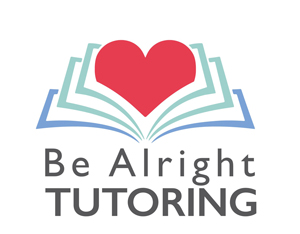Some learning challenges can make the process of learning to read and write incredibly difficult. These disabilities may be neurological disorders and can cause students to experience delays in cognitive processing. These delays, or limitations, can affect how a student thinks, remembers, listens, writes, spells, or does mathematics. These difficulties are not insurmountable, but they do require the assistance of a trained and knowledgeable professional. Just as a neurotypical student can benefit from having a tutor to help them understand subjects that challenge them, so too the right tutor can make a big difference in the learning experience of a neurodiverse student. The trick is finding the right tutor.
Anyone who will be tutoring a student with learning disabilities should understand the student’s unique challenges and how best to help them. Someone who doesn’t understand can make things more difficult and can possibly cause damage to a student’s self esteem.
Related: Your Child was Diagnosed with LD – Now What?
Different kinds of tutoring available – Pros and Cons
Not only do you have to find the right tutor for a neurodiverse student, but you should also consider the format of delivery. Some methods are especially effective with these students, while others may not work at all.
Online tutoring – pros and cons
Online tutoring has become significantly beneficial. Online sessions are straightforward and have become easily accessible with so many new technologies. You don’t have to have a complicated set-up to experience the wide range of possibilities for online learning. Here are just a few of the many benefits:
- Traveling time to and from sessions is eliminated.
- No geographical constraints. You can find and hire a tutor from anywhere in the world that speaks your language and has the right qualifications.
- Easily accessible via the internet and mobile devices – which most students are well-versed in operating.
- Flexible scheduling.
- Protection from infectious diseases or viruses.
- Shared online resources and access to other websites, videos, etc.
- Other resources like online whiteboards and screen sharing add to the learning experience.
- No social pressure for the student.
- Feels more private and safe for students.
- Sessions may be recorded for later.
- Students may feel more in control of the sessions.
The disadvantages of online tutoring for neurotypical students are not necessarily disadvantages for neurodiverse students. For instance, a student with learning disabilities may feel awkward sitting with a tutor in person and may not fully engage, but having an online session can put them at ease. Not feeling watched or pressured in person is a massive advantage for learning disabled students who have histories of being misunderstood by classroom teachers.
Is your child struggling to learn? Don’t worry. Everything is going to be alright. We can help. Check out Be Alright Tutoring today!
Private Tutoring – pros and cons
A big advantage of private tutoring is the one-on-one attention your child will receive. This is significant as many students just need someone to see their specific issues and know how to respond to them.
The con of private tutoring might be the difficulty of finding a qualified tutor in your area, and if you do, he or she may be expensive.
Educational therapy – pros and cons
The advantage of working with an educational therapist is they are immensely qualified to assist your child with their challenges. We’ll further discuss educational therapy as a tool for assisting students who are struggling. The disadvantage may be finding a qualified professional in your area, as well as the cost.
What can educational therapy do?
An educational therapist may or may not also be a teacher. The main goal of educational therapy is to work with parents and teachers to develop a plan for your child to help them overcome their challenges. These well-trained professionals will help your child acquire learning strategies and skills to enhance their learning experience. The plan they develop should be dynamic, in that it will flex and change with your child’s needs and how they respond to the plan. An excellent educational therapist will incorporate a holistic approach, paying attention to your child’s mental and emotional states as well as their intellect.
Related: What is Executive Dysfunction?
What about executive function coaching?
When students struggle, they are often urged to ‘try harder,’ which can be disheartening if they are already doing their best. But why is their best sometimes not good enough? For students with learning challenges, they likely need executive function coaching.
Executive function is the basic ability to self-manage. It’s how we can set goals and go about achieving them. Under the umbrella of executive function, there is focus, managing emotions, initiative, planning, organization, working memory, flexible thinking, and self-control. It’s easy to see why if any of these skills are compromised, it can adversely affect your child’s learning.
An executive function coach assists your child in developing skills and habits to learn effectively. Executive function coaches differ from a subject-matter tutor because their interest isn’t limited to your child’s progress with any one subject. The coach’s goal is to help the student succeed, now and in the future. The tools your child can obtain through this kind of coaching will enhance their lives, not just their learning.
Tips for tutoring students with learning disabilities
If you are the tutor of a student with learning disabilities consider the following tips. Students with learning challenges need to be taught differently, and you must understand their needs so that you can respond appropriately. The following tips can enhance the students’ experience and make your tutoring more effective.
Give appropriate and clear assignments
When you give assignments or homework, make sure that the instructions have been explained clearly and simply. If the work is too complicated or will take too long, the student will likely resist doing it. Ensure they fully understand, and can do what is expected of them.
Break down instructions into smaller tasks
Instructions should be broken down into small, manageable tasks. A student with a learning difference may not be able to process long, complicated instructions. You must give clear steps for any assignment. This will give the student their best chance at achieving the success that will motivate them further.
Use music and voice inflection
When you finish one concept and before you move to the next, consider a little song to help the student transition. Varied voice tones and inflections can also be useful in helping young students to learn well.
Related: Empowering Children: Discuss Challenges
Develop clear communication with home
By working together with parents, you can produce fantastic results for a student with learning differences. And like any teamwork, communication is vital. You should talk often to ensure that you are always on the same page about the student’s progress and the methods you are employing.
To summarize
Students with learning challenges may be helped by tutoring, but parents should ensure that the tutor understands the student’s unique needs. The tutor should be knowledgeable about learning disabilities, and how to adequately respond to them with compassion, competence, and confidence.
Is your child’s disorganization and procrastination with schoolwork driving you crazy? We can help. We offer executive function coaching. Contact Be Alright Tutoring.

